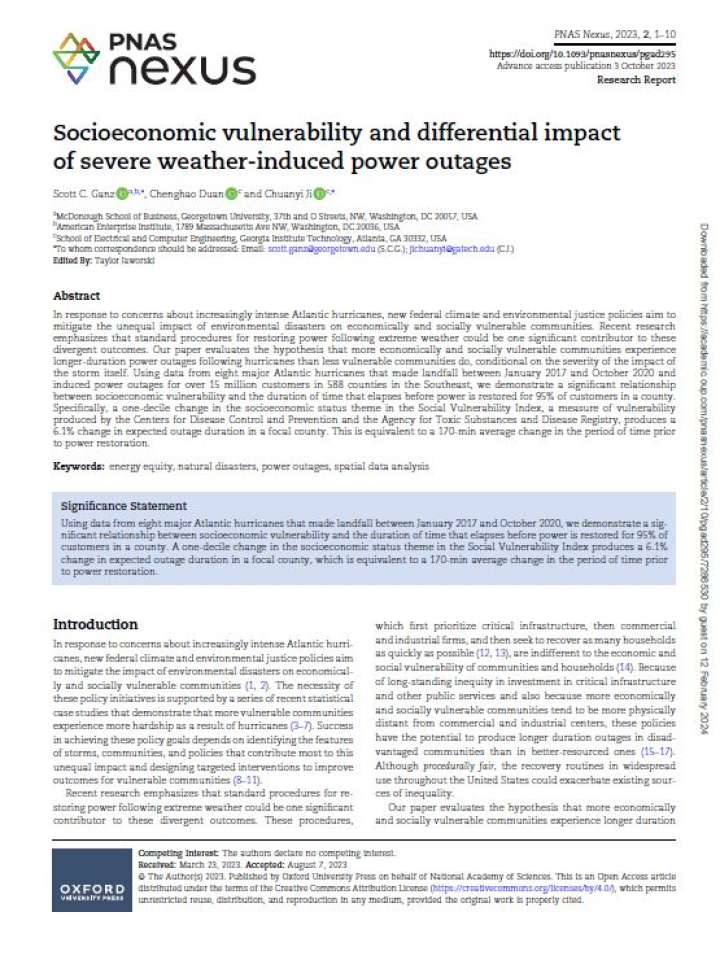Socioeconomic vulnerability and differential impact of severe weather-induced power outages
This paper evaluates the hypothesis that more economically and socially vulnerable communities experience longer-duration power outages following hurricanes than less vulnerable communities do, conditional on the severity of the impact of the storm itself. In response to concerns about increasingly intense Atlantic hurricanes, new federal climate and environmental justice policies aim to mitigate the unequal impact of environmental disasters on economically and socially vulnerable communities. Recent research emphasizes that standard procedures for restoring power following extreme weather could be one significant contributor to these divergent outcomes.
Using data from eight major Atlantic hurricanes that made landfall between January 2017 and October 2020 and induced power outages for over 15 million customers in 588 counties in the Southeast, we demonstrate a significant relationship between socioeconomic vulnerability and the duration of time that elapses before power is restored for 95% of customers in a county. Specifically, a one-decile change in the socioeconomic status theme in the Social Vulnerability Index, a measure of vulnerability produced by the Centers for Disease Control and Prevention and the Agency for Toxic Substances and Disease Registry, produces a 6.1% change in expected outage duration in a focal county. This is equivalent to a 170-min average change in the period of time prior to power restoration.
Explore further
